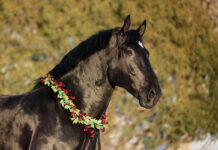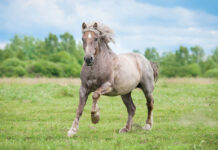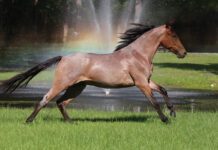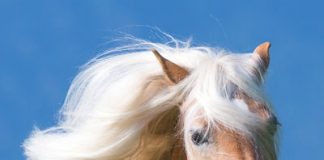From before the Vikings invaded through modern times, the sturdy and faithful Fell Pony has weaved itself through Northern England’s history in one form or another. In 1853, the first reference to Fell Ponies was found in a report about the Dent Horse Fair in the Westmorland Gazette. Three years later, the Ireby District Agricultural Show held a call for “the best Brood Pony direct from the fell.”
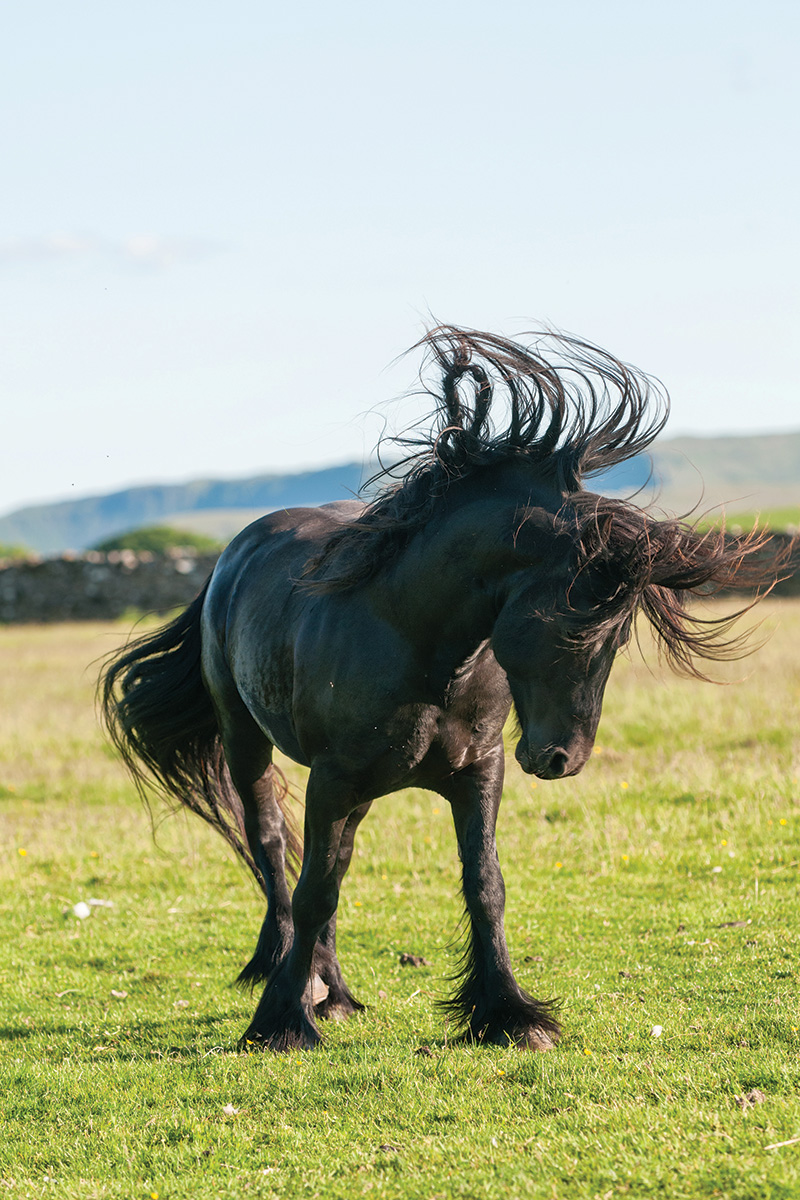
But it wasn’t until 1922 that the Fell Pony Society (FPS) was organized in the United Kingdom, not to improve, but to keep pure the breed of pony that helped shape its homeland.
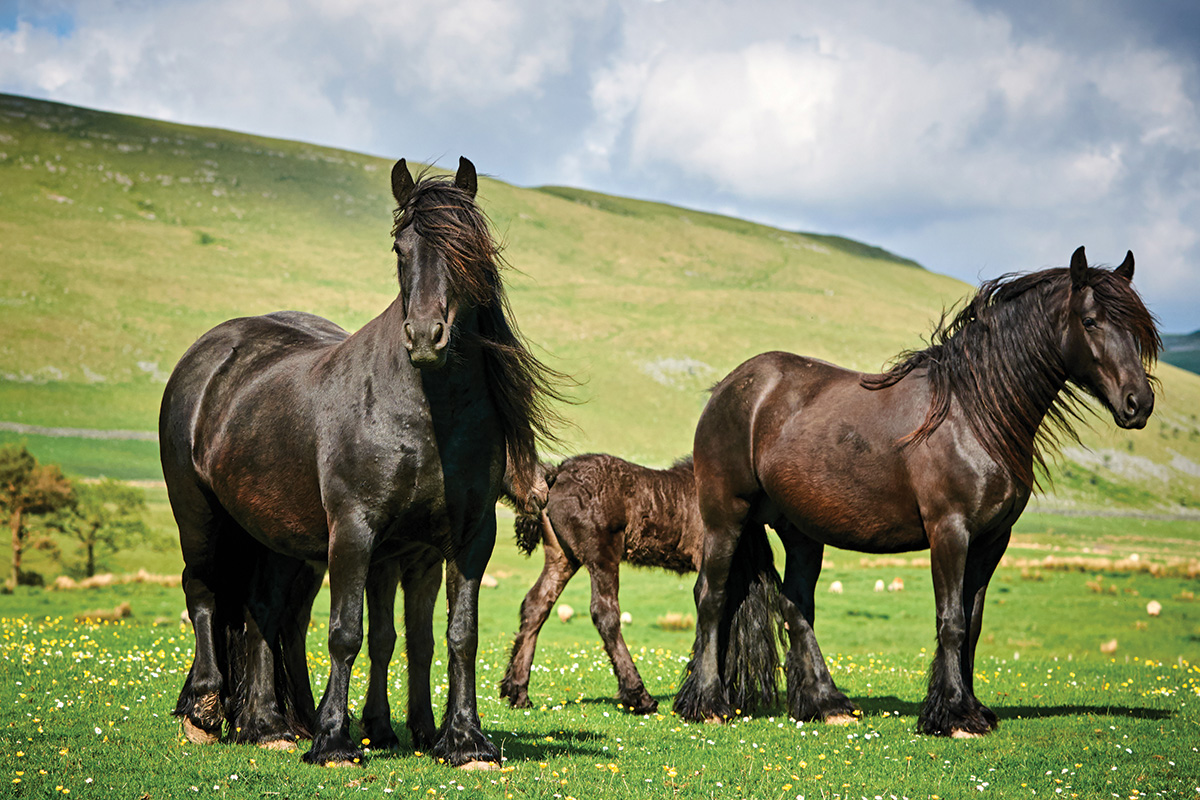
Today’s Fell Pony is as sturdy and even-tempered as its ancestors, though it has gotten larger in height over the centuries to suit more uses, including as an adult riding pony. They now stand between 13 and 14 hands. Black is the predominant color, although bay, brown and gray are also seen. While most are solid, they can have minimal white markings, such as a star or socks on the hind pasterns.
Celebrating the Centennial
In 2022, the FPS celebrated 100 years of the breed with a fun competition for Fell owners. Fell Pony owners around the world participated in the 100 Mile Challenge, where owners were encouraged to ride, drive, lead or otherwise log miles with their ponies to reach the 100-mile mark. Commemorative T-shirts were included, and for those that reach the mark, a special rosette to signify the accomplishment was furnished as well.
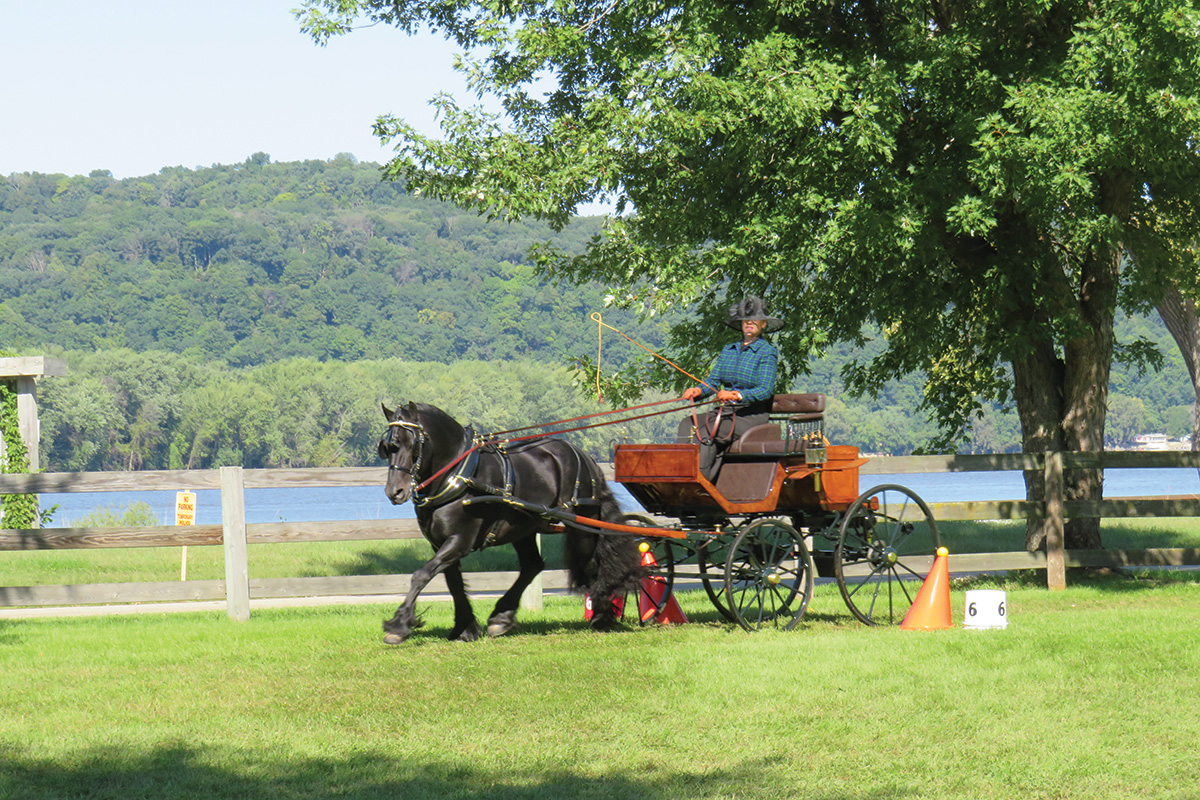
At the Royal Windsor Horse Show, held each year in May, well-known Fell Pony fan Queen Elizabeth II asked for 20 to 30 Fells to be in attendance. The Queen has been the patron of the Fell Pony Society since 1982. At the show, the FPS presented her with special gifts marking the 100 years. The FPS also held a range of events, including a Centenary Ball.
The Rare Breed of the Fell Pony
Despite their royal ties, Fell Ponies are listed as threatened by the Livestock Conservancy. The breed did not come to North America until approximately 1999, and now has around 800 horses registered. The Fell Pony Society of North America (FPSNA) is a member club for U.S. owners, but does not register horses. All Fells are registered with the UK registry.
“There are very few consistent breeders here, and fewer yet that show regularly,” says Melissa Kreuzer, chairperson and Zone 3 representative for the FPSNA. “This was different a decade ago, but some of the breeders have gotten older since I started. Virtually no breeders, besides myself, show their ponies now.”
Kreuzer has shown her own Fells in a number of disciplines. She was the 2009 U.S. Dressage Federation All Breeds Award Winner. She has won the FPSNA PPA Supreme Champion three times, with three different horses: Stennerskeugh Danny Boy (2016), DreamHayven Avalon Mist (2020) and Grace II (2021). Her stallion Littletree Bodini is a six-time FPSNA PPA Stallion Progeny Award Winner.
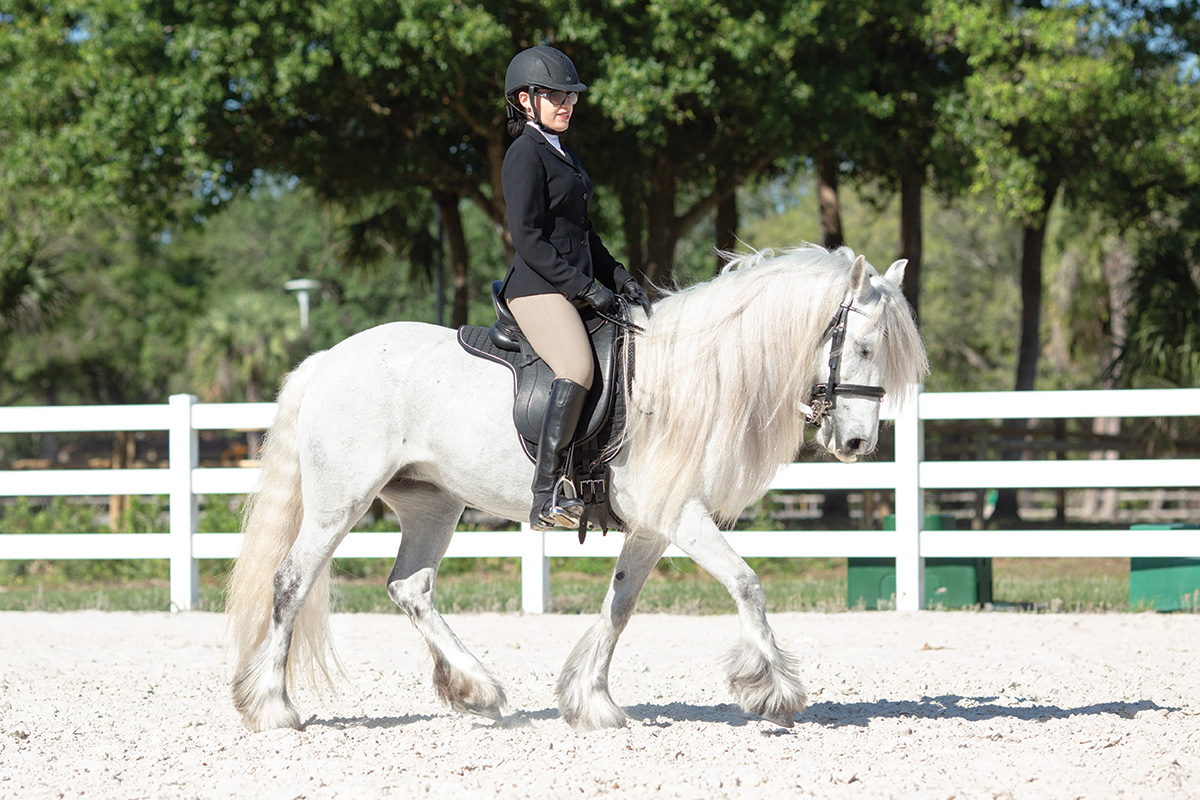
Perfect Trail Pony
Kimberly Dunn, owner of Get Grounded Equine, is a breeder and trainer of Fell Ponies in Oregon. She was introduced to the breed when she purchased a bay weanling colt from local breeder.
“I was looking for a unique clean-slate project that I could train for technical in-hand trail obstacle and liberty disciplines,” Dunn explains. “I was incredibly impressed with the intelligence, curiosity, sure-footedness, and agility of that colt.”
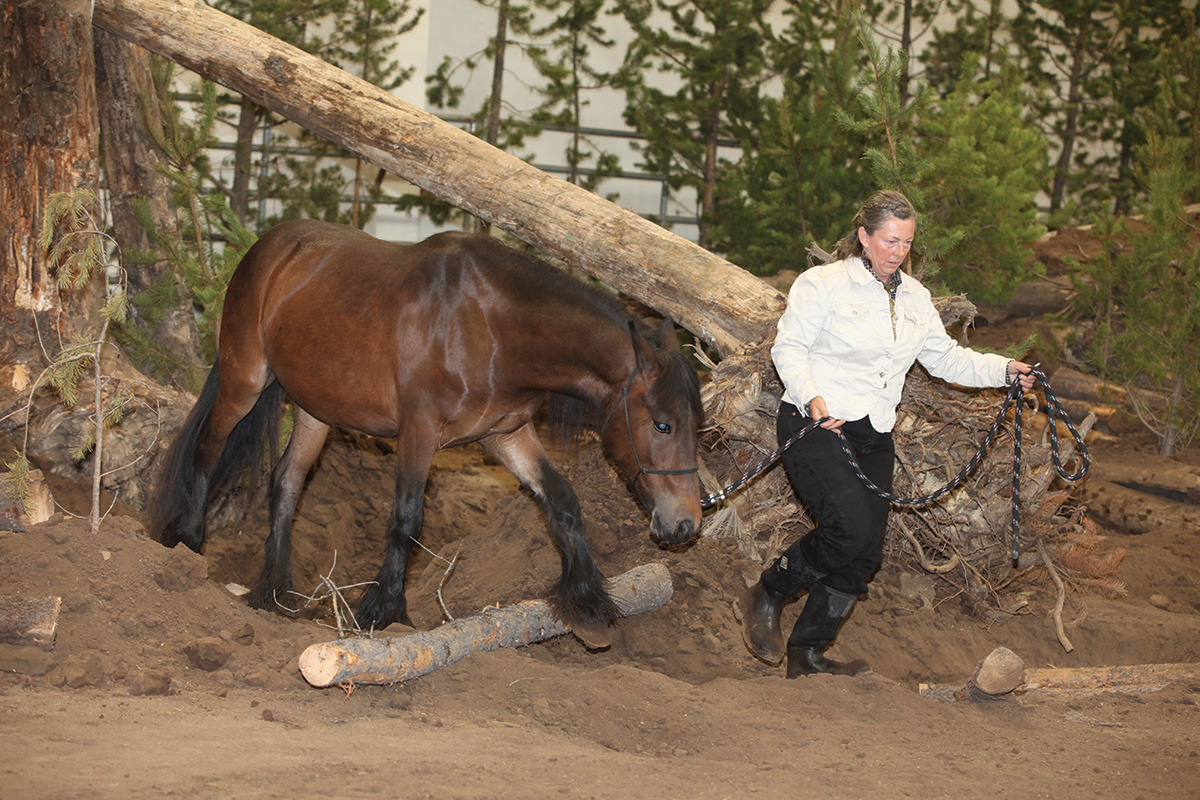
Soon after, Dunn had the opportunity to work with a 4-year-old Fell that was just beginning his riding training.
“As a trainer, my intrigue with the breed kept increasing, and I proceeded to train and start them under saddle,” she says. “The domino effect was set in place, leading me to a journey of training for other breeders as well as breeding, raising, and training for myself.”
Dunn loves trails, both for recreation and competition. The sure-footedness of the Fell Pony fit her lifestyle perfectly.
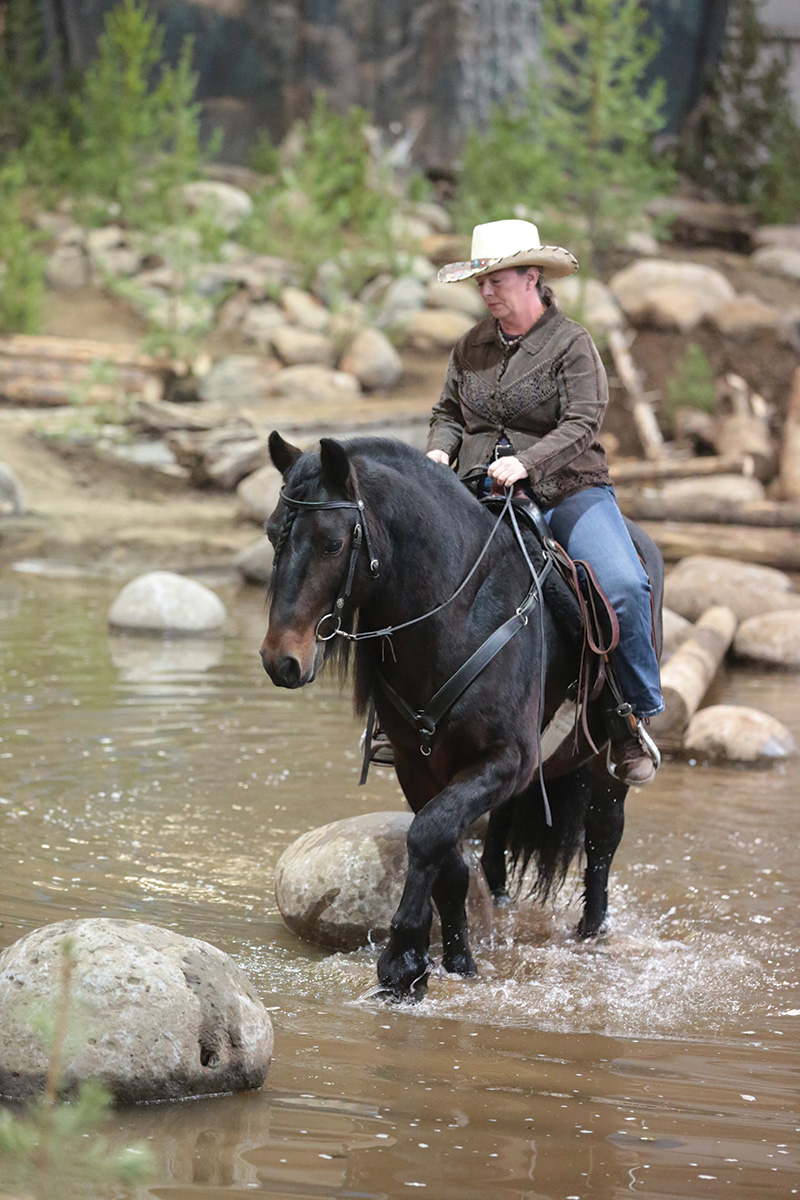
“The Fell Pony has the agility, confidence, and positive attitude needed for this versatile kind of work,” she says. “I like how they are solid in structure, maintain good balance in a variety of maneuvers, and are very strong in mind and heart. Even though they have characteristics similar to draft breeds such as calm, thoughtful temperaments, they are not dull or lazy.”
Along with trail, Dunn trains Fells to do long-lining, obstacle-based ground work, and liberty. In the past, she has done cow sorting, jumping, driving, string packing, and working equitation with this versatile breed.
“Most Americans think a pony under 14 hands is only suitable for smaller riders such as youth,” she says. “Interestingly, the Fell Pony is considered by most [as an adult’s riding horse] rather than children’s. When thinking about the measure of weight bearing ability, the Fell Pony will often show more ability structurally than many taller breeds. The direct contributing factors are substantial leg bone, short back, deep and well sprung ribs, notable muscling, and a well-balanced base that stands true to four corners.”
The Fell Pony has carried away many a heart with its quiet disposition and natural ability. If you’re looking for your next trail or all-around horse, it might be good to remember that great things come in small packages.
This article about Fell Ponies appeared in the October 2022 issue of Horse Illustrated magazine. Click here to subscribe!

